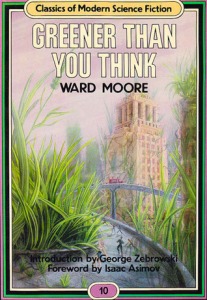This is the notion (thanks to Peter Shukie and Lou Mycroft) that finally made me want to respond to the suggestion that the rhizome might be an invasive species. Before that I had been too busy down other rabbit holes to engage enough to write. It felt like a set task.
The first objection that had come to me was the fact that this is a category error, the rhizome is a plant type, it is not a species. (I’m fascinated how my dictation software creates un-intentioned echoes and counterpoints, it is not a species, came onto the page as it is not suspicious). Actually I’d say the rhizome is a mode of plant self-propagation, or perhaps the a mode of being, but more of that later. Then I thought about the notion of invasion, invasion requires a somewhere to be invaded, and perhaps someone or something to be invaded. I wasn’t sure what this somewhere/one/thing could be, the rhizome for me doesn’t exist in a bounded space, and that is what is joyful and rich about it. If there are no bounds, there is nothing and no one to be invaded.
But more than anything the words invasive species created the image of a homogenous marauding mass that smothers everything else. This this way of looking at the rhizome jars profoundly with my understanding. I see the rhizome as a way of looking at what learning is and how the mind works; we explore, and grow through that exploration, we assimilate nutrients and trace elements, we cluster, and sometimes we throw shoots skywards. And it works: when I sit with it, and follow the thought, I realise that that is how I learn.
There is a cartoon by Gary Larson, in which a cow is standing in a field with some other cows, her head is raised and she looks amazed, or even outraged. And she’s saying “Wait a minute! This is grass! We’ve been eating grass!” I felt like that when I came across the idea of learning as a rhizome. As if that notion had been staring me in the face all along, or waiting at the tip of the tongue. No possibility of invasion, the rhizome has always been there.
It reminds me of what happpened with the idea of the Personal Learning Environment. When that notion first appeared there were people trying to build Personal Learning Environments, when actually we all already have one, in the same way as learning already is rhizomatic. The PLE is not a thing, it is a way of thinking about learning and comprehending the interactions involved. The question is how to use that idea to improve teaching and education.
In this context, to me the idea of “rhizomatic learning” as opposed to any other kind of learning is odd. What would that other kind of learning be? Arborescent learning? I can entertain the notion of arborescent teaching or arborescent education, but my learning is not arborescent, however much I may sometimes express knowledge in arboreal form (and in the process simplify it). Learnign just is rhizomatic.
As with the PLE, the challenge is how to use the notion of the rhizome to improve teaching and education. Learning will probably take care of itself. But if you ask me about rhizomatic teaching and education, I hope we can make it as successful as the Bermuda grass in “Greener than you Think”, though preferably much more diverse.
After all, “there is no mother tongue”, only power relations – hi Mom! -, so let a thousand weeds bloom.

The cow cartoon reminded me of this: http://www.unitedyam.com/golb/wp-content/uploads/2013/05/This-is-water.jpg
Thank you for taking the time to write this. All this invasive qualifying is invasive…